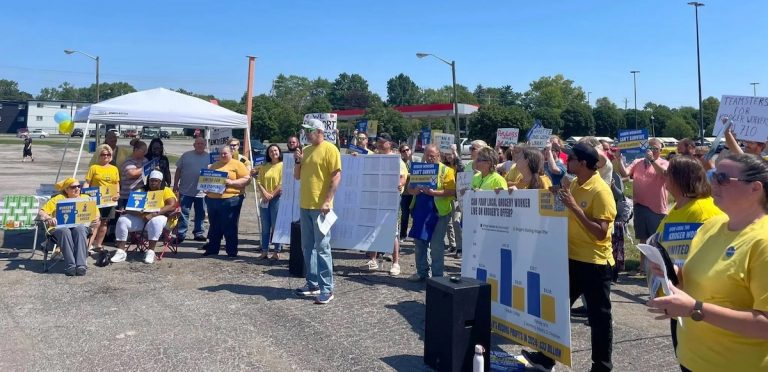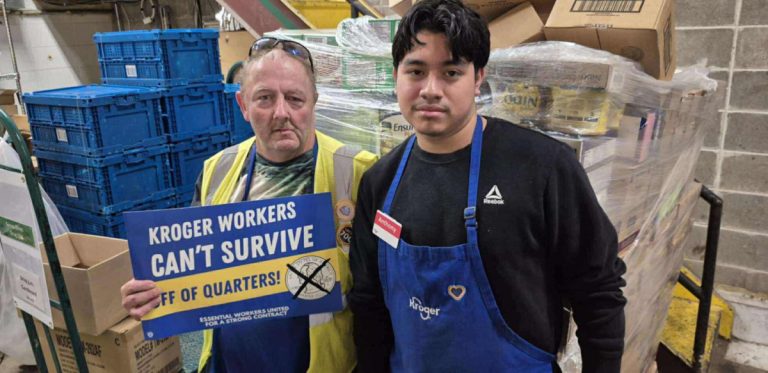Indiana Kroger Workers Win Better Contract After Voting ‘No’ Twice
With 8,000 workers, the Indianapolis Kroger contract is the largest in Food and Commercial Workers (UFCW) Local 700. After keeping members in the dark about negotiations, our local union leadership dropped a concessionary contract in our laps. Wage increases didn’t keep up with inflation, and there was no contract language to address understaffing. It was obvious this contract was sending us backwards.
My co-workers and I were angry, but we weren’t sure what to do. I joined a Zoom meeting hosted through the reform group Essential Workers for Democracy. I was shocked to see how many members felt the same way about our contract and our union.















